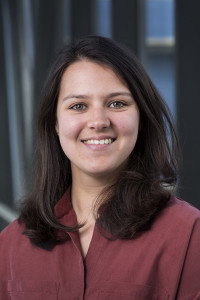PhD student

Cytotoxic T lymphocytes (CTLs) are critical in immune responses against viral infections and cancer. They recognize antigens presented by malignant or virus-infected cells, and perform specific killing of these cells. This adaptive immune response also leads to the formation of memory CTLs that are rapidly reactivated upon a second encounter with the antigen, resulting in long-term protection.
In order to obtain their cytotoxic functions, naïve CTLs need to be properly activated via interactions with antigen-presenting dendritic cells and CD4+ T helper cells. Using a DNA vaccination model, our lab has shown that CD4+ T cell “help” is essential to generate CTLs with improved cytotoxic, migratory and memory capacities. My research aims to gain a better understanding how CD4 T cell help shapes the differentiation pathway of CTLs, and to assess the relevance of “helped” and “helpless” CTL populations in cancer vaccination and the response to immunotherapy.
I studied Biomedical Sciences at the University of Amsterdam, with two master internships at the Netherlands Cancer Institute (NKI) and the Free University medical center - Cancer Center Amsterdam (VUmc-CCA). I obtained my Master degree in 2018, after which I started my PhD project in the group Prof. Jannie Borst at the Netherlands Cancer Institute. In 2019, our research group moved to the LUMC.
Busselaar, J., Tian, s., van Eenennaam, H., and Borst, J.
Front. Immunol. 11: 592569, 2020.
Ahrends, T., Busselaar, J., Severson, T., Bąbała, N., de Vries, E., Bovens, A., Wessels, L., van Leeuwen, F. and Borst, J.
Nat Commun. 2019 Dec 4;10(1):5531
Looking for information on one of our topics, a new place to conduct your research or connect to experienced researchers to join forces with? Feel free to contact us!